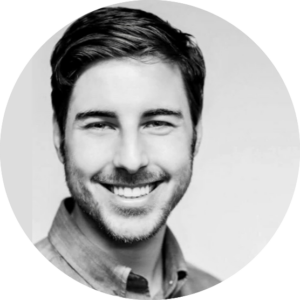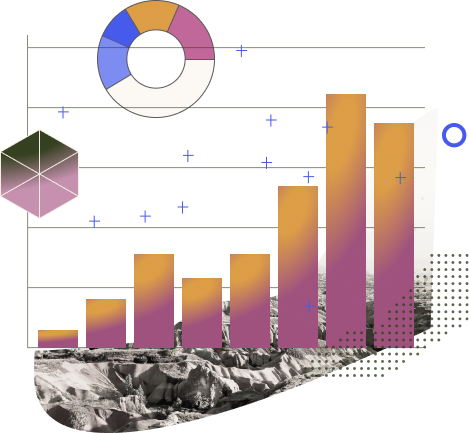How To Scale a CPG Brand with Aimy Steadman of Beatbox Beverages, Future/Proof, and Naturally Austin.
Who is Aimy Steadman and Why Should You Care?
Aimy came to the United States from the Middle East to go after entrepreneurship. She got her MBA at McCombs, then helped to run Texas Venture Labs, then took her startup up idea from her MBA program to Shark Tank to get $1M for 33% from Mark Cuban. She is a member of EO (Entrepreneurs Organization), is a Venture Partner at Congress Avenue Ventures, is a Strategic Advisor at Springdale Ventures, and helped to start Naturally Austin. She is currently COO at Future/Proof, the parent company of BeatBox Party Punch, the fastest growing consumer packaged good in the under 750mL alcohol category. Let’s learn from Aimy.
Chris: When did you go full time with BeatBox?
Aimy: I had to work on BeatBox on nights and weekends while working at Texas Venture Labs until we were able to secure funding. Once we raised money on Shark Tank, I was able to go full time with BeatBox.
Chris: Can you tell me why the alcohol category, and what your positioning strategy was?
Aimy: We were seeing boxed wine all over the place but it just wasn’t connecting with the audience that it was made for. That was the hunch. So we did a bunch of market development to prove that theory out. We had this idea that we wanted to become the Red Bull of wine and then alcoholic drinks. We were trying to become the millennial version of boxed wine.
Chris: Can you share a bit about market validation as a process?
Aimy: The UT MBA program is heavily focused on market validation. Rob Adams, who was the Director of Texas Venture Labs while teaching on the MBA faculty at UT, wrote a book called, “If you build it, will they come?” It’s about testing and validating a business idea to make sure you hit your target audience with something they would actually buy before you go spending a bunch of money. I was heavily influenced by this way of thinking.
We do a ton of testing and listening to our customers via channels we have created with our brand ambassadors and channel partners. This is absolutely part of our “secret sauce” and how we are able to innovate successfully.
Knowing Your Highest And Best Use As A Founder
Aimy: My co-founders did most of the sales and marketing and I focused on the COO stuff.
When you start a company you naturally do everything in the company. As you grow, the founders have to specialize. When it was just me and Justin, he head up our sales team, and I did everything else. When Brad joined fulltime as well, he had a big vision for the brand and naturally felt right as CMO. I’m not a traditional COO but I managed everything but sales and marketing for the first several years of the company. As we grew, I brought in exceptional leaders under me and now focus on operations from an entrepreneurial perspective: what are the systems, processes, and teams we have to put in place for continued success?
You absolutely need to look at your strengths and weaknesses and led that lead your role in the company as opportunity for specialization exists. Many folks I know in EO swear by the CultureIndex system. These types of tests can help point a direction out if it’s not clear from the start.
Chris: What do you do now at the company?
Aimy: I have learned that my best use is not to be working on one specific store or shelf, I need to be training other people on how to best do that. I am currently hiring supply chain managers that will represent our brand as well or better than I do. My job is to make sure that happens and to spend my time cultivating partnerships and other business development initiatives. I see it as, I should be spending my time not on things that will increase sales by 5-10%, but that will 20X our business over the next few years.
Naturally Austin, CPG, and the Environment
Chris: You have been extremely active as a network and community builder. Can you tell us a bit about Naturally Austin, it’s goals, and your goals within it?
Aimy: The whole point of Naturally Austin is to grow the CPG Austin group but also to foster responsible entrepreneurial growth. That means inclusivity and environment. I am on the board and my focuses are sustainability, diversity, and inclusion. I’m extremely anxious about climate change to the point where it affects my decision on whether to have kids or not.
At Future/Proof, we do a lot of eco-friendly things which helps. But I’m also thinking about leverage and how I can make as big of an impact as possible. By having a voice in this network, I can begin advocating for an entire population of businesses to become carbon neutral. I also sit on the Women’s Board of EO in Austin. We are working on get out the vote campaigns with the businesses there because elections have a huge impact on how our environment is treated.
Finally, I’m working to get every Naturally Austin company to become plastic negative. The truth is that we will have a post fossil fuel economy, but we must deliver the message in a constructive way. I think of it as: This post fossil fuel economy is coming whether we like it or not, so let’s get in front of it, and solve it.
Chris: As the COO, can you share some of the most impactful things other founders and operators can be doing to set a business up for scalability?
Aimy: I’m super nerdy and make everyone I work with get on Asana. I like to set goals and have a process for everything we do as soon as it makes sense. We recently implemented the Entrepreneurship Operating System which has been an incredible system for my team.
Chris: I hear people argue about whether you should grow the number of stores you are in or if you should lock down a region and try to absolutely crush everyone in your category. What are your thoughts on this debate?
Aimy: I think the region strategy is a bit safer. We were in 100 stores in Texas. A unique thing about alcohol is that it’s tough to sell online. We had national media, but it didn’t help much because only Texas audiences could purchase. When you spread out geographically, you need to add headcount with boots on the ground in those regions: new field managers, new salespeople.
If you have a small, craft brand, I would recommend owning your own backyard and figure out your model. Get good data and make sure you get into at least one big natural grocer, or one big convenience chain, or for us, one big liquor or package store. Collect that data, improve on the sell through and put together your best possible sales pitch for getting into that type of store.
Crafting Your Pitch To Get Onto Shelves
Aimy: For grocery, we talk about the “trade up opportunity”. When you’re a small brand, you have to be as helpful as possible in showing the buyer why being on their shelves makes sense. At BeatBox, we are an incremental added spend, meaning, we aren’t just an exchange of other dollars most of the time. We are additional dollars spent by traffic through the store.
We also like to focus on Dollars Per Point of Distribution. Our product takes up about 3 inches of space, and the question is, “What is the most amount of money you can make from those 3 inches?” If you put BeatBox in that spot, on average, you’ll make more than anything else in that part of the store.
If you are in the big stores, you can get this sort of data from Nielson and IRI, but when you’re in the smaller stores like Royal Blue, you have to just ask the stores. If you are willing to build relationships with them, they will provide this info. H-E-B and other large chains sometimes also provide a scorecard for you.
At the end of the day, you have to craft the best story possible. When you’re doing sales, you should be asking your prospect, in this case the store, what their problems are. If traffic is the problem, how are you going to help them drive traffic? If they want profit, how are you going to increase their dollars per point of distribution? Buyers these days have become very mature and data driven. Naturally Austin has a number of webinars about this sort of stuff all the time.
About Naturally Austin
Naturally Austin’s mission is to stimulate conscious growth, foster sustainable and responsible entrepreneurship, and develop exceptional leaders while growing the Central Texas natural and consumer products ecosystem. We are the only collaborative community for natural CPG in Austin – to join or support the organization, reach out to Emily Ingle Kealey.

